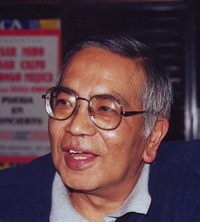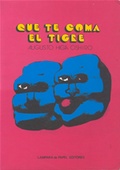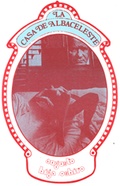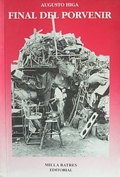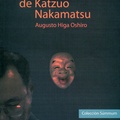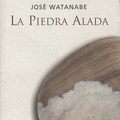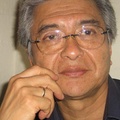Segunda parte de la conferencia que ofreció en octubre de 2009 el Dr. Marco Martos durante el ciclo de charlas por los 110 años de la inmigración japonesa al Perú, referida a la obra literaria de José Watanabe y Augusto Higa.
Conozco a Augusto Higa Oshiro desde la universidad; yo soy mayor que él, y lo he visto muchas veces en los pasillos de la universidad. Y tuve mucho interés por el grupo del que formó parte, que es el grupo Narración. En ese grupo había algunos de los que después serían de los más destacados escritores del Perú en la ficción. Estaban Miguel Gutiérrez, Oswaldo Reynoso, Juan Morillo –me parece que al comienzo estuvo también Eduardo González Viaña–-; otro que después dejó de escribir pero que era una promesa era Carlos Ballardo, estaban también Gregorio Martínez y Augusto Higa. Seguramente me olvido algún nombre.
Siempre los veía en un bar, siempre los veía hablando de literatura y tomando poco. Se sentaban por horas de horas. Parecía que estaban perdiendo el tiempo. En realidad no lo estaban perdiendo, estaban preparando la revista Narración, que fue muy importante en los años 70.
Y poco a poco, cada uno de ellos, de forma muy lenta, se fueron convirtiendo –en forma muy lenta en el sentido de que no publicaban un libro cada año– …Yo he notado que tiene la razón Alejandro Romualdo cuando dice “la poesía no se vende”. Decía eso en los dos sentidos: en el sentido político y en el sentido que nadie compra poesía. Pero los narradores cuando venden mucho son atrapados por las editoriales y comienzan a ofrecer una novela cada dos años, y a veces les adelantan. Entonces, cuando les adelantan tienen que terminar la novela; y la novela ya no siempre es buena. Son mejores, pienso yo, las que no tienen ese apremio.
Ninguno de los miembros de Narración estuvo capturado por las editoriales y, por lo tanto, su producción ha sido más lenta, pero también han podido preparar mejor sus productos. Yo recuerdo ese primer libro de cuentos de Augusto, por lo menos es primero que yo leí, Que te coma el tigre , de 1978. Y ese era un libro de cuentos de un peruano, de un hombre de barrio. Y “Que te coma el tigre” era una canción. Los menos jóvenes tal vez se acuerden. Uno de esos sonsonetes: “que te coma el tigre, que te coma el tigre”. Y eso fue el año 78.
Después tiene La casa de Albaceleste , del año 87 y la novela del 92, Final del porvenir . Augusto siempre ha sido un hombre de barrio, inclusive hasta su última novela, ésta que para mí es deslumbrante, La iluminación de Katzuo Nakamatsu , que es de 2008; es una novela donde están las marcas del barrio. Siempre ha habido una discusión sobre si los narradores deberían o no mencionar los lugares por los que sus personajes van. Vargas Llosa lo hace siempre: sus personajes van por la calle Porta, cruzan la avenida 28 de Julio, etcétera, etcétera. Augusto Higa tiene esa cosa también, que es de corte realista. Pero los que quieren teorizar en contra inventan a veces, cuando escriben, ciudades fantasmales. Hay un narrador que inventa una ciudad que no existe en ninguna parte y entonces piensa que su estructura está en el aire.
Entonces yo, comentando esta novela de este autor, digo “pero este personaje se pone un terno y por el simple hecho de ponerse terno ya sabemos que es peruano, porque nadie sino los peruanos, dicen la palabra terno”. Entonces, es casi imposible un lenguaje neutro que nos coloque en ninguna parte. Y bueno, es una discusión teórica. Pero quiere decir que en los cuentos y novelas de Augusto siempre se ve que se trata de un peruano, y peruano de barrio. Esa es una característica desde su primer libro.
Pero la otra cosa que él ha ido marcando, y sobre todo aparece en sus dos últimas publicaciones: una antropológica o testimonial, Japón no da dos oportunidades y la otra, este libro La iluminación de Katzuo Nakamatsu , donde está… en el mismo título está marcado el origen japonés del personaje. Este es un nombre de origen japonés, o sea, no hay ninguna duda, pero él lo quiere marcar de una manera absoluta.
Yo creo que la crítica peruana ha pasado muy rápido sobre esta experiencia en el Japón de Augusto, porque es una experiencia individual; el testimonio es de corte realista, tiene esto de gran reportaje que tienen algunos trabajos que se publican en los diarios. Pero no ha habido una recepción, un comentario a fondo del significado de este libro. Y el significado, él lo ha dicho en declaraciones: es que los peruanos de origen japonés descubren su peruanidad precisamente cuando van al Japón. El hecho de ir al Japón los hace más peruanos. Entonces, yo quisiera saber, pero nunca lo voy a lograr saber, qué ocurre con los que sí se adaptan, ¿o no se adaptan ciento por ciento?
Y particularmente a mí me interesa saber, no sé si algún día alguien escriba sobre qué ha pasado con Abelardo Takahashi Núñez, el compositor chiclayano que sí fue al Japón y se quedó allí y murió en el Japón, según tengo entendido. Sería muy interesante saber cómo…claro él ha viajado de más edad; y de todas maneras Augusto tenía en mente ir y regresar.
* Este artículo se publica gracias al convenio entre la Asociación Peruano Japonesa (APJ) y el Proyecto Discover Nikkei. Artículo publicado originalmente en la revista Kaikan Nº 48, agosto 2010.
© 2010 Asociación Peruano Japonesa y Marco Martos Carrera / © 2010 Fotos: Asociación Peruano Japonesa. Foto Augusto Higa: Enrique Higa


